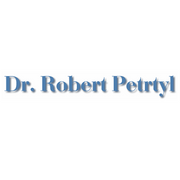
Daily care at home and biannual teeth cleanings from a dentist are key to maintaining good oral health. Brushing and flossing are both essential because they get rid of bacteria before they can turn into plaque. Tartar is another major concern that contributes to tooth decay and gum disease, but it's often used interchangeably with plaque. To understand why good oral hygiene is important, here's a quick look at how these two corrosive substances differ from one another.
Plaque Is a Sticky Film
Plaque forms on teeth and along the gumline throughout the day. The sticky film is the result of naturally occurring bacteria in the mouth mixing with sugar and starch residue from the foods and beverages you consume. A toothbrush and dental floss remove the bacteria before it can cause bad breath and gingivitis, which is the early stage of gum disease.

That's why dentists recommend brushing twice a day and flossing at least once a day. Scheduling teeth cleaning at least once every six months is also crucial because at-home care isn't able to remove 100% of the plaque that forms. This remainder soon begins to harden.
Tartar Is Calcified Plaque
When plaque isn't removed due to poor oral hygiene, the minerals in saliva will mix with the film. The film calcifies as a result, turning into tartar. It only takes 24 to 48 hours for this process to occur, which is why you need to brush to clean the enamel and floss to remove food particles between teeth and along the gumline.
Once tartar develops, flossing and brushing won't remove it. You'll need professional teeth cleaning, as a dentist will use a scaler to scrap the hard particles off surfaces. Deep cleaning might also be necessary to remove tartar that's developed beneath the gumline. When tartar isn't removed, the bacteria can cause gum disease to progress to the more serious periodontitis, and cavities will be more likely to form.
For teeth cleaning and a thorough exam, visit Dr. Robert N. Petrtyl, DDS, in Cincinnati, OH. With over 30 years of experience, the skilled dentist provides general dentistry services and oral surgery to maintain or restore the teeth and gums of patients in the Hamilton County area. Visit the family dentist online to find out how he will care for your smile, read patient feedback on Facebook, and call (513) 554-4657 for an appointment.
About the Business
Have a question? Ask the experts!
Send your question

